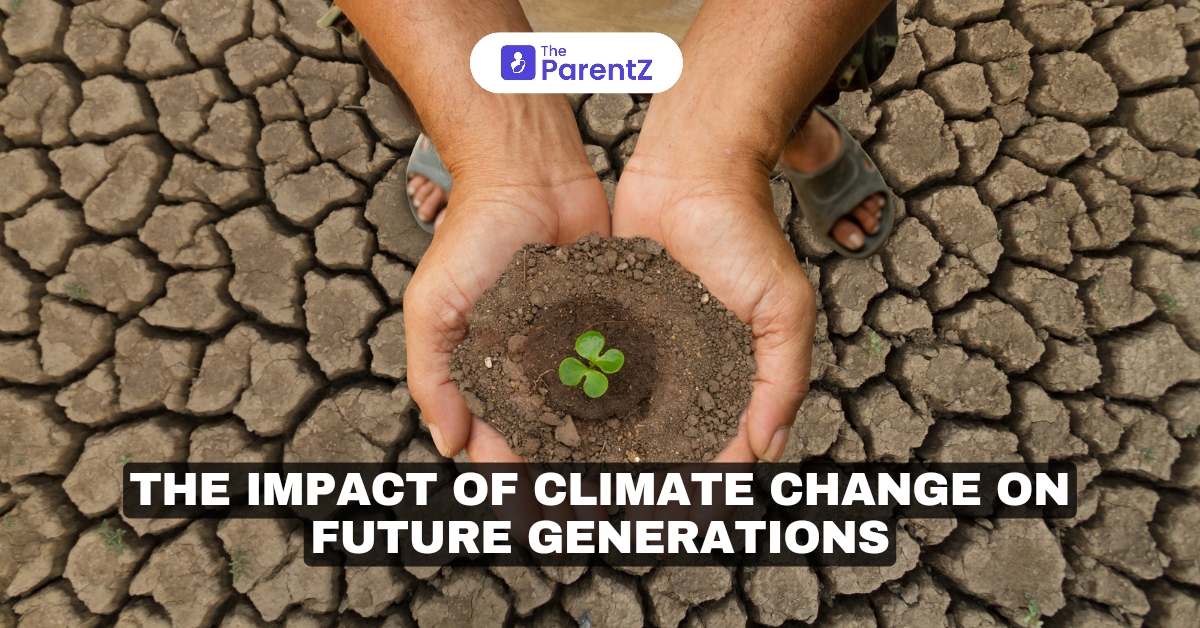Climate change is no longer a distant threat; it is an imminent reality with profound implications for future generations. As the planet warms due to increased greenhouse gas emissions, the consequences will be far-reaching, affecting everything from the environment and biodiversity to human health and socio-economic stability. Understanding the impact of climate change on future generations is crucial for taking meaningful action today. This article delves into the scientific research and forecasts to outline the potential challenges that our children and grandchildren will face and explores how we can mitigate these impacts to ensure a sustainable future.
The Science Behind Climate Change
The science of climate change is well-established. The Intergovernmental Panel on Climate Change (IPCC) has reported that the Earth’s average temperature has risen by approximately 1.1°C since the pre-industrial era, primarily due to human activities such as burning fossil fuels and deforestation. This warming is causing significant changes in global weather patterns, sea levels, and ecosystems, with potentially catastrophic consequences for future generations.
- Temperature Rise: Scientists predict that, without significant reduction in emissions, global temperatures could rise by 1.5°C to 2°C within the next few decades. This seemingly small increase can have dramatic effects, including more frequent and severe heatwaves, altered precipitation patterns, and intensified storms.
- Melting Ice Caps and Rising Sea Levels: The polar ice caps and glaciers are melting at an accelerated rate, contributing to rising sea levels. Future generations may face the loss of entire coastal regions, increased flooding, and the displacement of millions of people.
- Ecosystem Disruption: Climate change is already disrupting ecosystems, with species facing extinction at an unprecedented rate. The loss of biodiversity will impact future generations’ access to natural resources, food security, and the overall health of the planet.
Health Implications for Future Generations
Climate change poses significant health risks that will disproportionately affect future generations:
- Heat-Related Illnesses: As temperatures rise, heatwaves will become more frequent and severe, leading to an increase in heat-related illnesses and deaths. Children and the elderly are particularly vulnerable to these conditions.
- Respiratory Issues: The increase in air pollution, exacerbated by climate change, will lead to a rise in respiratory diseases such as asthma and chronic obstructive pulmonary disease (COPD). Future generations will likely face a higher prevalence of these conditions, particularly in urban areas.
- Vector-Borne Diseases: Climate change is expanding the range of disease-carrying vectors, such as mosquitoes and ticks. This will lead to the spread of diseases like malaria, dengue fever, and Lyme disease into regions that were previously unaffected, posing new health challenges for future generations.
Socio-Economic Impacts
The socio-economic implications of climate change will be profound and far-reaching:
- Economic Disruption: Future generations will inherit a world where economic stability is threatened by climate-related disruptions. Agriculture, fisheries, and tourism, which are heavily dependent on stable environmental conditions, are particularly vulnerable. This could lead to food shortages, loss of livelihoods, and increased poverty.
- Migration and Displacement: Rising sea levels, extreme weather events, and deteriorating living conditions will force millions of people to migrate. This mass displacement will strain resources, increase competition for land and water, and potentially lead to conflict.
- Inequality: Climate change will exacerbate existing inequalities, with marginalized communities bearing the brunt of its impacts. Future generations from these communities will face greater challenges in accessing resources, healthcare, and opportunities for social mobility.
The Role of Education and Advocacy
To mitigate the impact of climate change on future generations, education and advocacy are essential:
- Climate Education: Integrating climate education into school curriculums is crucial for raising awareness among young people. This education should focus not only on the science of climate change but also on sustainable practices, conservation, and the importance of taking action.
- Youth Activism: Young people have become powerful advocates for climate action, with movements like Fridays for Future gaining global traction. Encouraging and supporting youth activism is vital for driving policy changes and holding governments accountable for their environmental responsibilities.
- Community Involvement: Local communities can play a significant role in combating climate change. Initiatives such as community gardens, renewable energy projects, and conservation efforts can help reduce carbon footprints and promote sustainability.
Mitigation and Adaptation Strategies
To protect future generations, immediate action is required in both mitigation and adaptation:
- Reducing Carbon Emissions: The most effective way to combat climate change is to reduce greenhouse gas emissions. This can be achieved through a transition to renewable energy sources, such as solar and wind power, increased energy efficiency, and the adoption of sustainable transportation methods.
- Climate-Resilient Infrastructure: Future generations will need infrastructure that can withstand the impacts of climate change. This includes building flood defenses, designing climate-resilient cities, and investing in early warning systems for extreme weather events.
- Sustainable Agriculture and Food Security: Sustainable agricultural practices, such as agroecology and permaculture, can help ensure food security for future generations. These methods focus on reducing environmental impact, conserving water, and preserving biodiversity.
Conclusion
The impact of climate change on future generations is one of the most pressing challenges of our time. Without immediate and sustained action, our children and grandchildren will face a world with more extreme weather, health risks, economic instability, and social inequality. However, through education, advocacy, and the implementation of effective mitigation and adaptation strategies, we can reduce these risks and build a more sustainable and equitable future. The responsibility lies with all of us to take action now, for the sake of those who will inherit the Earth.





Be the first one to comment on this story.